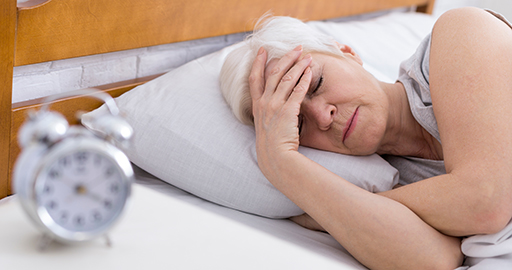1 Why can’t I sleep?
While everyone will have a different experience of their menopause, there are some common factors that affect sleep in menopause.
Of course it comes as no surprise that the blame for difficulties in getting a good night’s sleep is due to changes in hormone levels. In particular the reduction in progesterone, rather than the usual culprit, oestrogen. Progesterone has an important benefit in terms of our mood, our levels of anxiety and in promoting relaxation (Newson, 2023). Before menopause, some people can experience a lovely feeling of wellbeing and feeling quite ‘chilled’ when they pass the midpoint of the menstrual cycle and progesterone was in ascendance. It’s no surprise to learn, then, that falling levels of this hormone can lead to restlessness, difficulty getting comfortable in bed and problems with sleep, most particularly a shift towards frequent waking through the night.
Other hormones are also implicated here as falling levels of oestrogen and progesterone levels affect melatonin, an important hormone in helping us to get to sleep and stay that way until it’s time to get up. Studies have shown that lower levels of testosterone can reduce sleep quality and duration in those in menopause. As this is an effect of ageing rather than being specifically related to menopause it is a reason why everyone might find that they don’t sleep as well as they used to as they hit their mid-life.

